On two warm sunny days in mid-June (and amid a national rail strike), THINK was delighted to host The International Conference on Transport and Health (ICTH) “transit stop” at the beautiful Bute Park visitor centre and Glamorgan Cricket Ground conference centre known as Sophia Gardens in Cardiff. We got outside as much as possible to enjoy the weather. We tried out a range of different bikes from Cardiff Pedal Power, watched a T20 cricket match (won by the local team), and had a fun walking tour of Bute Park, learning about the history of Cardiff city.
Summary
The two days were full of a diverse range of topics presented as posters or presentations, some in person and some delivered remotely.
DAY ONE SUMMARY
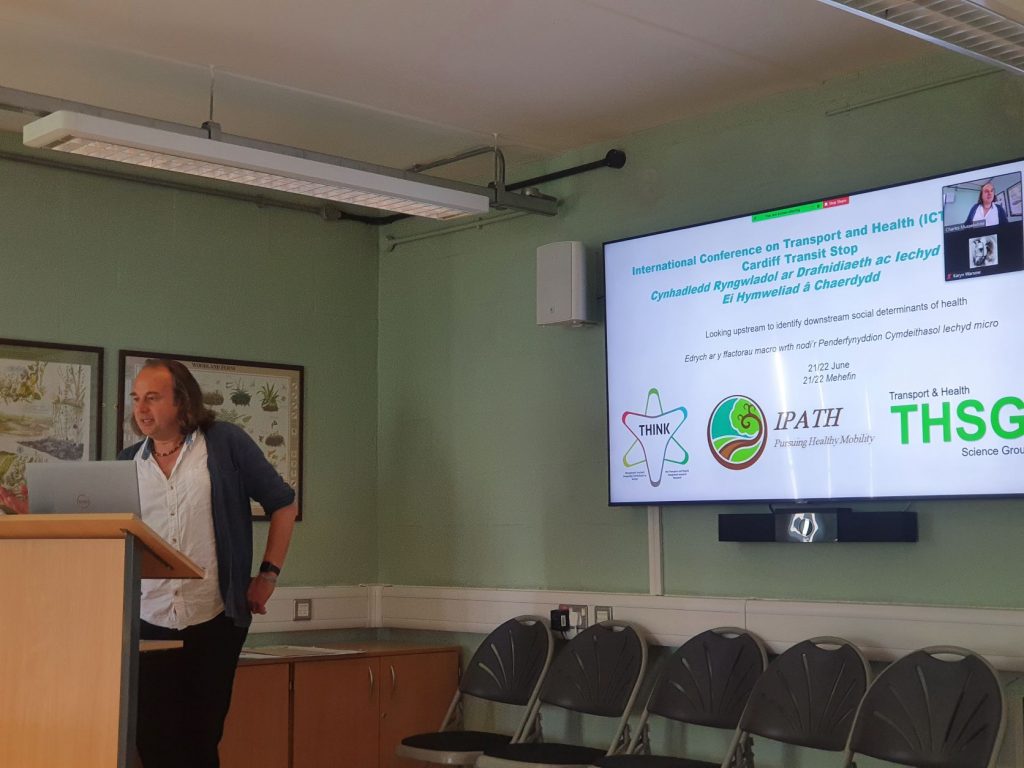
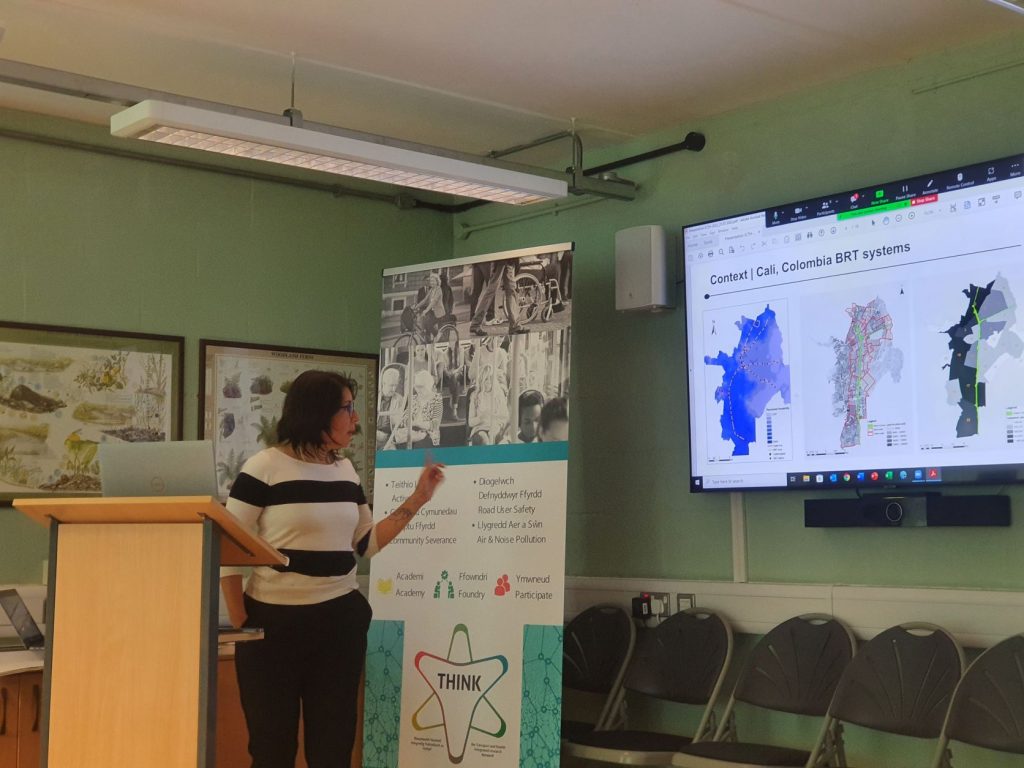
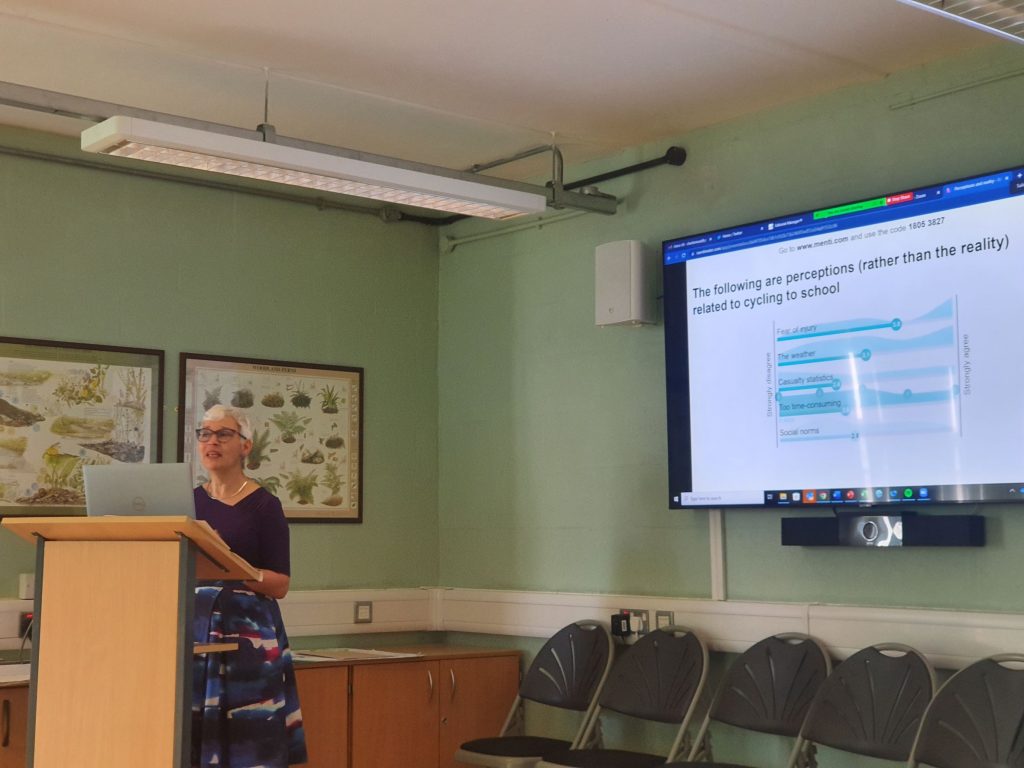
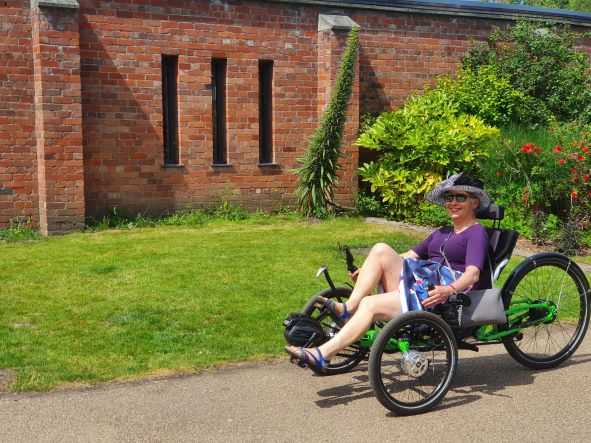
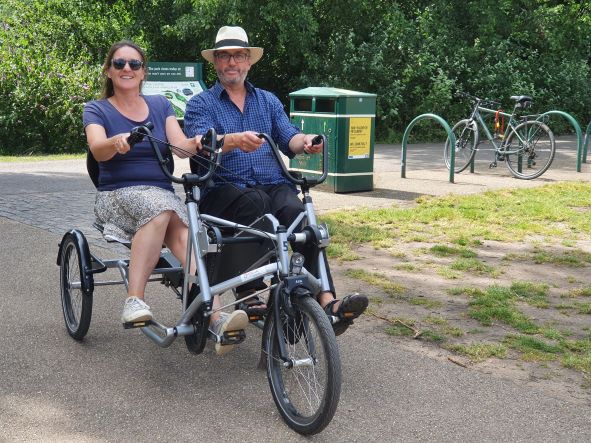

Jenny Mindell (UCL, London, UK) spoke in person on behalf of an international team including academics from Wellington, Auckland and Dunedin in New Zealand, about the important difference between perceptions and reality when it comes to cycling safety and the role that cycling training plays.
We also heard remotely from a poster team led by Yusuke Kanda, National Institute of Technology, Kure College, Kure, Japan, about the challenges of defining the social return on investment for transport mobility solutions that promote health equity.
Sarah O’Toole (UCL, London, UK) spoke remotely about promoting independent mobility of young people with special educational needs and disabilities and how the link between parents and schools plus consistent infrastructure design (such as crossing button heights) are all important for reinforcing safety messages.
Natalia Villamizar-Duarte (Newcastle University, UK) presented her team’s work on the links between liveablity and land prices in relation to health determinants and inequalities in Cali, Colombia, highlighting how the new Bus Rapid Transit infrastructure built to support poorer parts of the population was actually benefitting wealthier people the most, despite them being mostly car users.
Day one ended with a sociable and exciting T20 cricket match between Glamorgan and Middlesex along with food.
DAY TWO SUMMARY
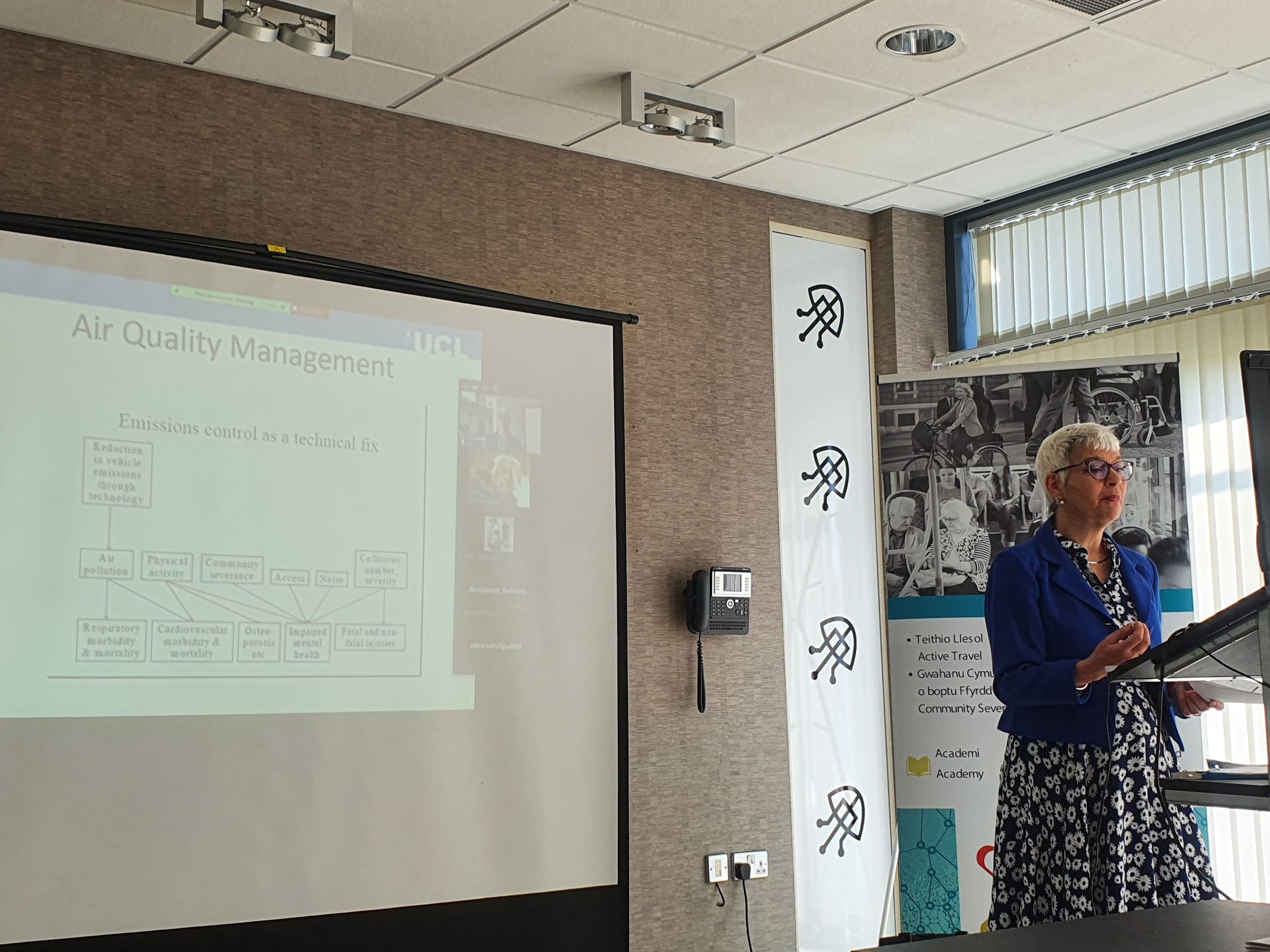
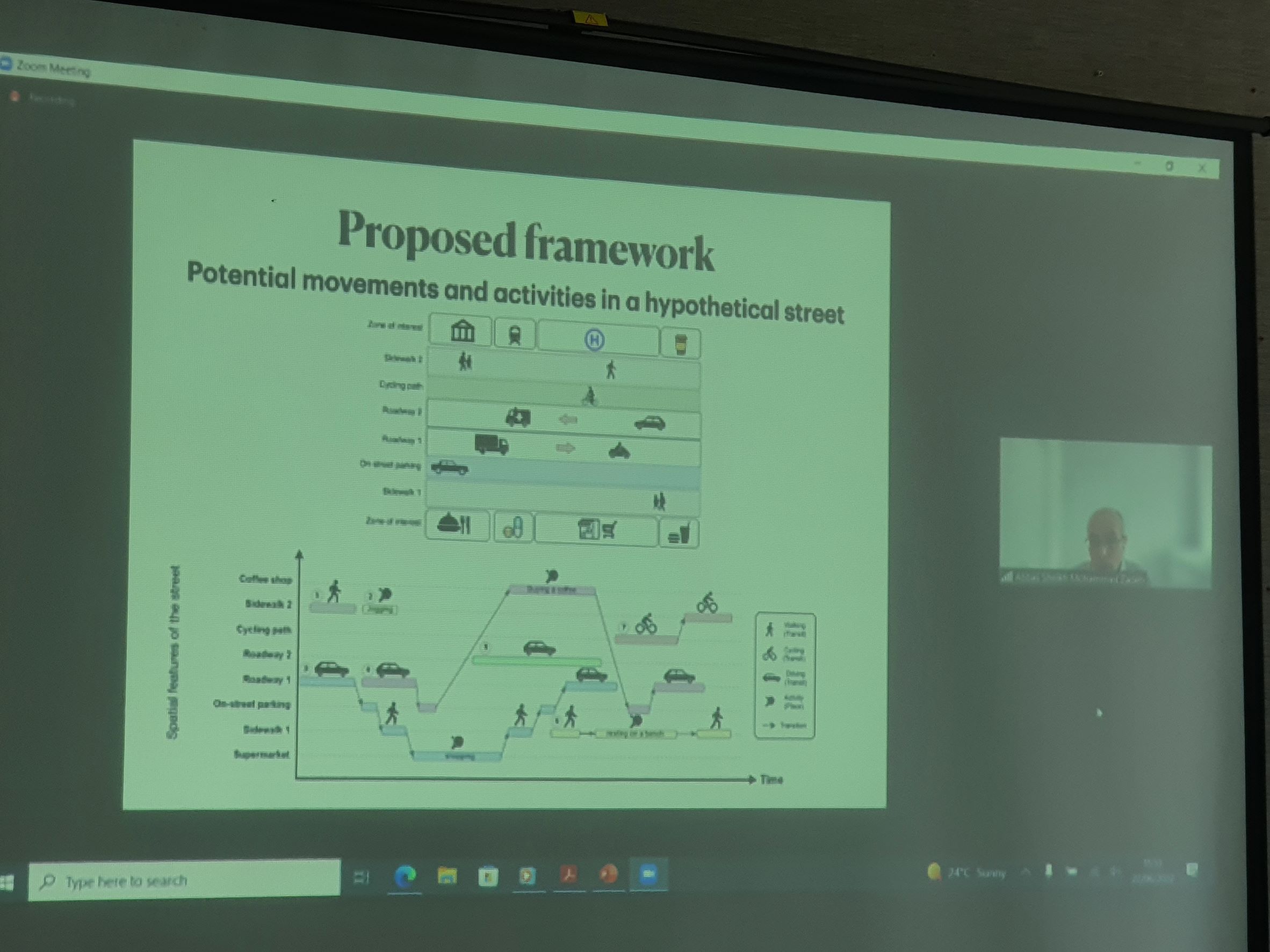
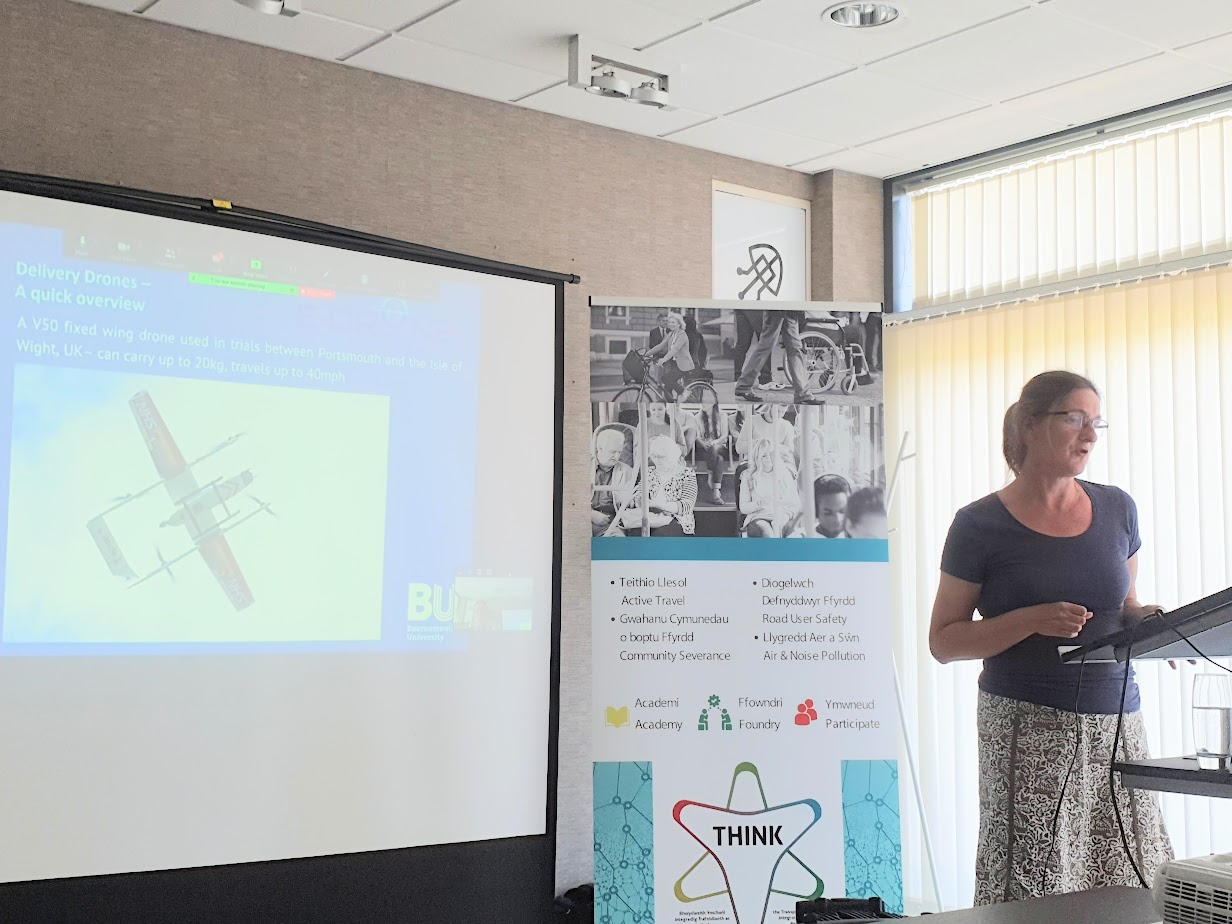
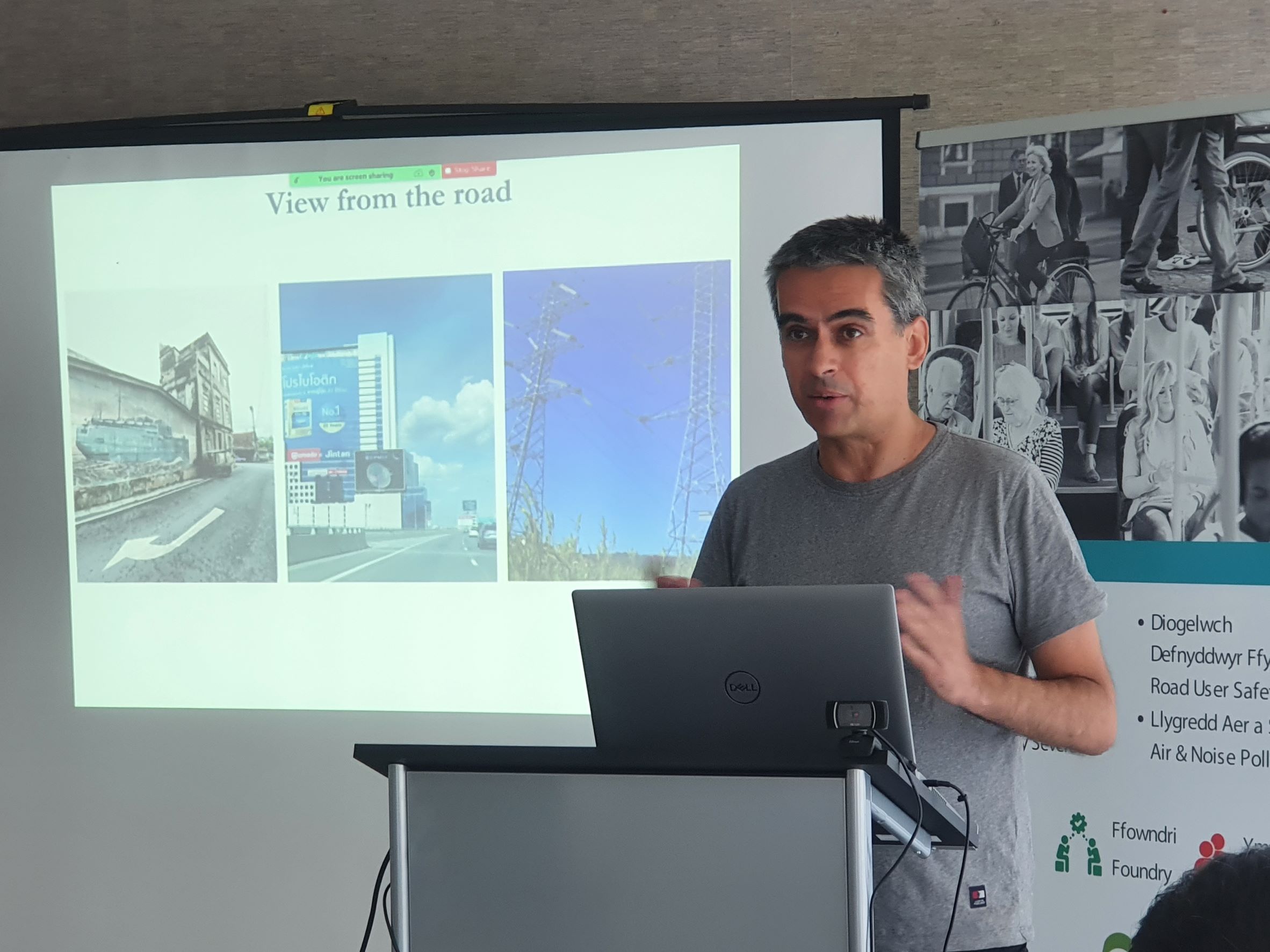
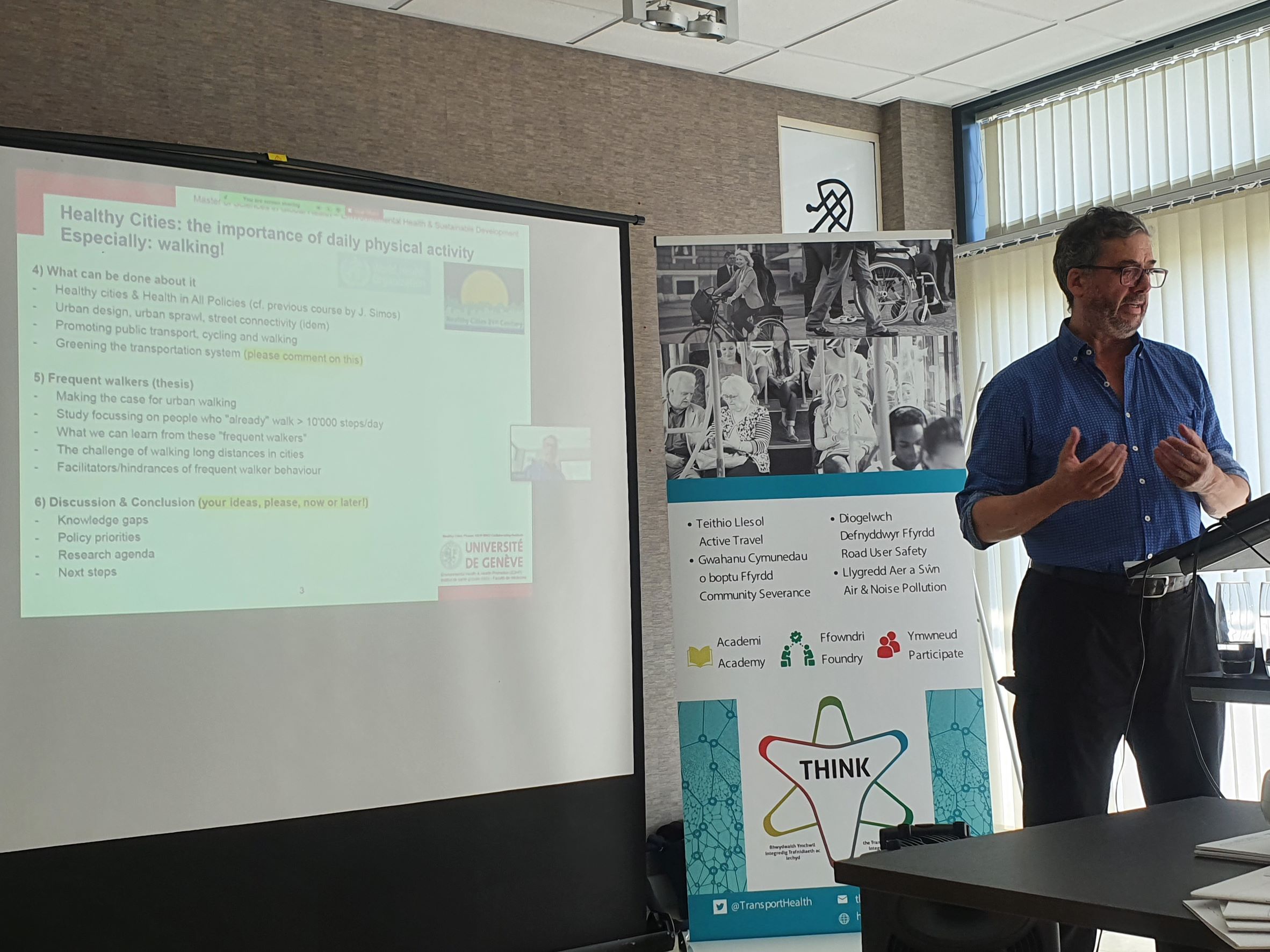
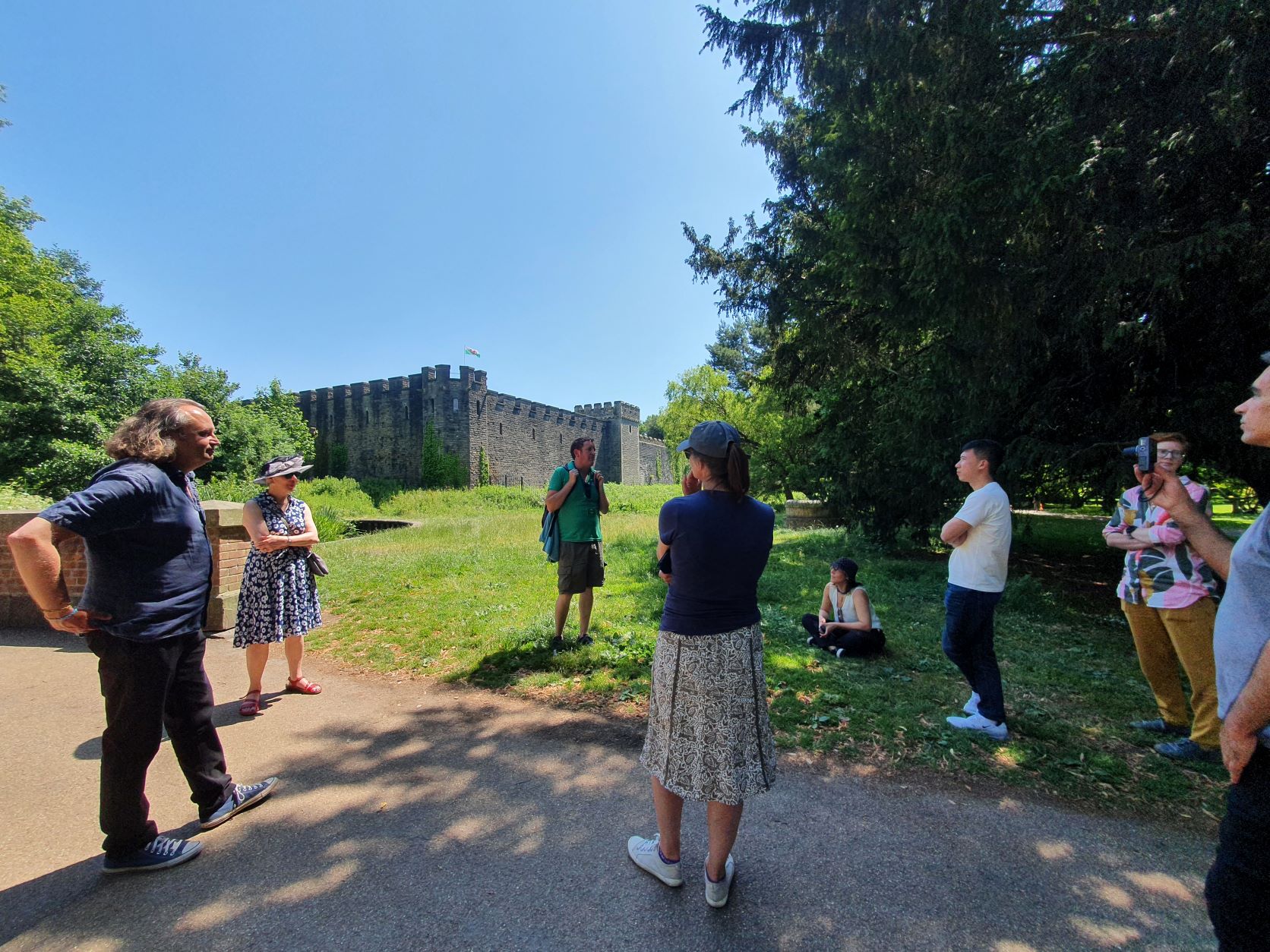
Jenny Mindell (UCL, London, UK) opened the second day in person with her keynote speech introducing the history of the monitoring and evaluating of air quality in the UK and the approach that Wales is taking to transport and health. She highlighted transport inequalities and the importance of addressing community severance and a key takeaway was that transport is about moving people from where they are to where they need or want to be not necessarily just about moving cars around. You can find the Street Mobility Toolkit for assessing community severance that she mentioned online and we’d like to support anyone who would like to test it out in their area Street Mobility Project Toolkit | Institute of Epidemiology & Health Care – UCL – University College London.
Stephen Greaves (University of Sydney, Australia) talked about the consequences of the Covid-19 pandemic on working from home, active travel, health and wellbeing in Australia. He highlighted that reduced commuting and incidental travel relating to work became a lost opportunity for physical activity leading to more sedentary behaviour, so how can we make non-work destinations more accessible by walking and cycling and how can employers help people be more active when working from home?
Sarah O’Toole (UCL, London, UK) remotely presented her research on pregnancy and commuting to work which led to a lively discussion in the room. She highlighted how half of the women surveyed had to make changes to their commute due to pregnancy, feeling excluded from public transport due to over-crowding and over-heating and delays and cancellations really impacting wellbeing. Pregnant women reported many advantages to home-working and flexible working hours outside of busy commuting times. There could be a role for midwife appointments to help expectant mothers assess the impacts of commuting. A multi-agency approach involving transport agencies, employers, midwives and expectant mothers could lead to effective interventions that support the commute experience of pregnant women.
Paulo Anciaes (UCL, London, UK) presented his research on community severance in a small African city highlighting how increased car ownership and traffic is making conditions for pedestrians worse, with insufficient crossings and less propensity for walking with impacts on health and wellbeing, affecting older people the most.
Derek Christie (Institute of Global Health. University of Geneva, Switzerland) then spoke about his team’s research into frequent walkers in Switzerland and how they integrate 1-2 hours of daily walking into their already busy schedules. He reported that personal pleasure, wellbeing and health are key motivators for those who walk for commuting and leisure, taking fast, direct routes in the morning and slower more scenic routes home. Interestingly, individual values rather than collective values emerged as key motivators (walkers can close off from socialising but enjoy sensory stimulus). So how can this be used to design pedestrian friendly places which are a pleasure to walk through? And, can their be a visual display of average walking times and distances to key places in cities?
The participants then went on a walking tour of Sofia Gardens and Bute Park, Cardiff, with Eugene Fogerty of Fogo’s Free Tours.
After lunch, the team at Pennsylvania Department of Transportation remotely presented their experience of Find my Ride, an online service to help identify local transport options to improve health outcomes from improved transportation access. They focused on making the application process smoother and using videos to overcome misconceptions about existing transit support services.
Angela Smith (Bournemouth University, UK) then spoke about the potential for a drone delivery network for health services. She concluded that the full exploitation of necessary scheduled delivery services needs to take place first, making the most of the existing network. For example, visits to surgeries and transporting pathology tests using existing services like the Post Office, before a network of fixed drone corridors between health care sites could be of value to health logistics or ‘just in time’ treatments like chemotherapy.
Paulo Anciaes (UCL, London, UK) returned to present his research on the the visual aspects of transport, identifying many gaps in research around the impact of looking at the same views every day during commuting trips on stress and wellbeing, and the impact of different landscapes on distraction, including adverts and movable displays. He highlighted the lack of research from a pedestrian perspective of intrusive billboards, walls, signs, and the visual impact of cars when moving and stationary, which can reduce visibility.
Abbas Sheikh Mohammand Zadeh (Polytechnique Montréal, Canada) presented remotely on an objective framework to evaluate street functions using a case study on speed bumps in Montréal, Canada. The key takeaways were that streets are links, used for access, and places too. Every location has its own uniqueness and transport is contextually specific, but some learning can carry over from one place to another.
The final talk of the day in person was from Cheng-Kai Hsu (University California Berkeley, US) who presented his research on air pollution exposure and health impacts of commuting by bus, underground and bicycling in central London. His research, using Lung Deposited Surface Area technique, highlighted that cycling on alternative routes (backstreets, residential areas and green parks) can halve air pollution exposure, air conditioning in buses can improve ventilation and therefore air quality for passengers, and the design of underground stations (entrance/exit, transfer and cabin spaces) really does matter.
It was a conference with some great conversations, debates and discussions leading to exciting new ideas for joint international research. Look out for the annual THINK conference in 2023, and if you have any ideas for content that would benefit your work, do get in touch at think@aber.ac.uk.
Remember you can continue the discussions from the conference on the THINK LinkedIn group The Transport and Health Integrated research NetworK – THINK | Groups | LinkedIn